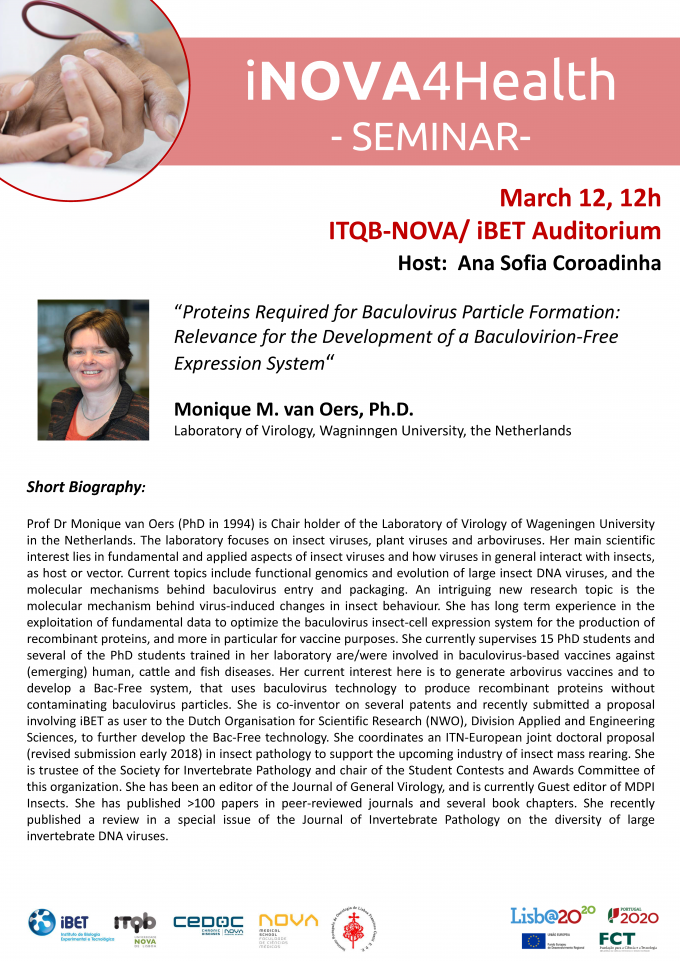iNOVA4Health Seminar: Proteins Required for Baculovirus Particle Formation: Relevance for the Development of a Baculovirion-Free Expression System
12 Mar 18 iBET/ITQB NOVA Auditorium, Oeiras
In my talk I will first give an impression of the Laboratory of Virology of Wageningen University and give two examples of the work we are doing, related to behavioural manipulation by baculoviruses and arbovirus vaccine production. When using the conventional baculovirus expression system to produce vaccines or gene therapy vectors, baculovirus particles are abundantly co-produced. Extensive downstream processing may be required to remove these baculovirus particles, which might be difficult to achieve (e.g. for enveloped VLPS and which clearly affects product yield.
Together with Généthon and iBET we aim to develop a modified expression system that does not produce contaminating baculovirus particles. Our first strategy was to use a virus with a deletion of a gene essential for baculovirus nucleocapsid (NC) assembly and to complement that deletion through a transgenic cell line during seed production. So far, we have analyzed two viral genes in detail that could serve this objective, the vp80 and vp1054 genes. VP1054 is a functional homologue of the cellular PURα (purine-rich element binding) protein. GGN-repeat elements in baculovirus genomes are likely to be the targets of VP1054 and important for the encapsidation of viral DNA into progeny NCs. VP80 mediates the transport of NCs from the virogenic stroma to the nuclear periphery by interacting with nuclear F-actin. VP80 also binds DNA through a basic helix-loop-helix (bHLH) domain and may play an auxiliary role in viral genome packaging. The data obtained permit the engineering of a baculovirus-expression system that produced foreign proteins at high levels without contaminating baculovirus particles.
Proof of principle was obtained with a defective baculovirus genome that lacked vp80. The trans-complemented, defective baculovirus was capable to produce high levels of recombinant protein in transgenic Sf9 cells, whilst the co-production of baculovirus progeny virions was completely inhibited. However, the vp80 gene was quickly removed from the transgenic cell line. An inducible vp80-expression strategy was then adopted and tested at iBET, but there a quick gain of function was observed, resulting in a revertant viral phenotype, able to form virus particles again. Finally, I will explain our current strategies to develop a robust BacFree platform to be used for the production of viral vaccines and AAV vectors. These include RNAi and CRISPR/CAS based strategies as well as a method based on thermo-inducible promoters to drive the expression of genes essential for NC formation.

